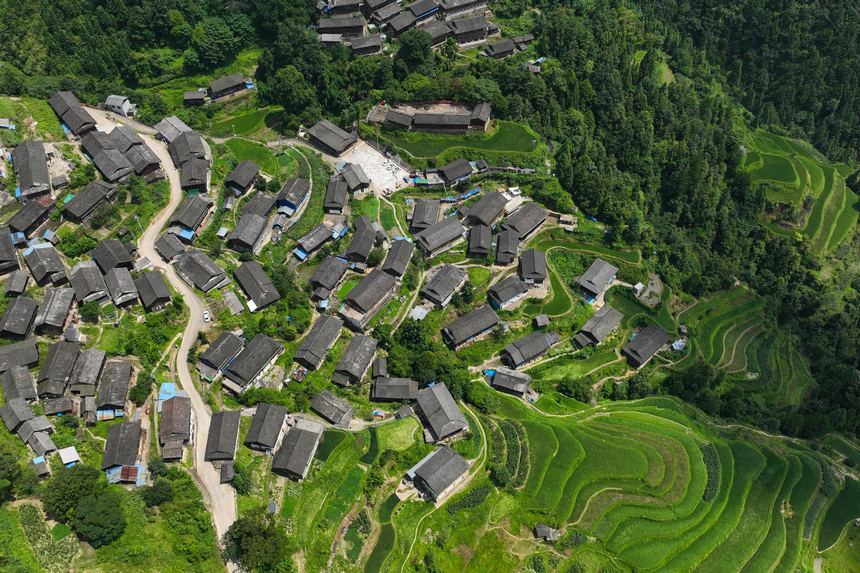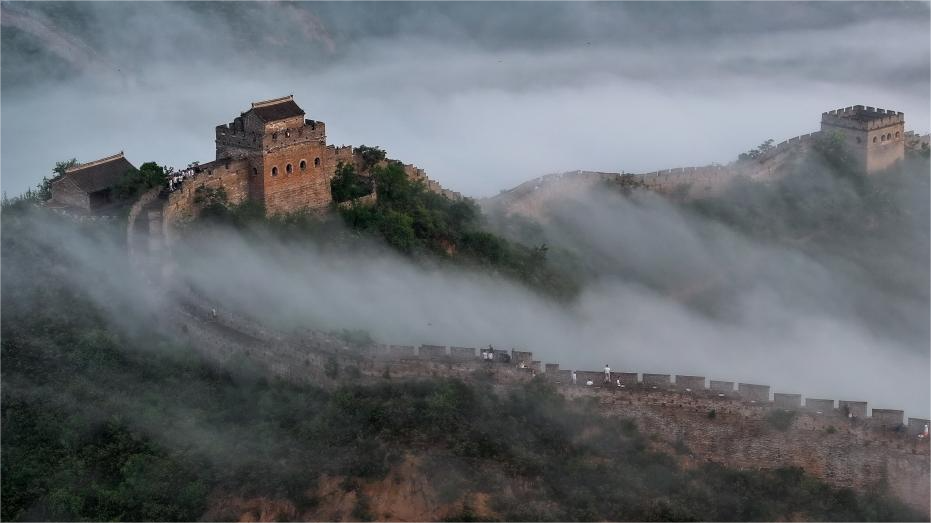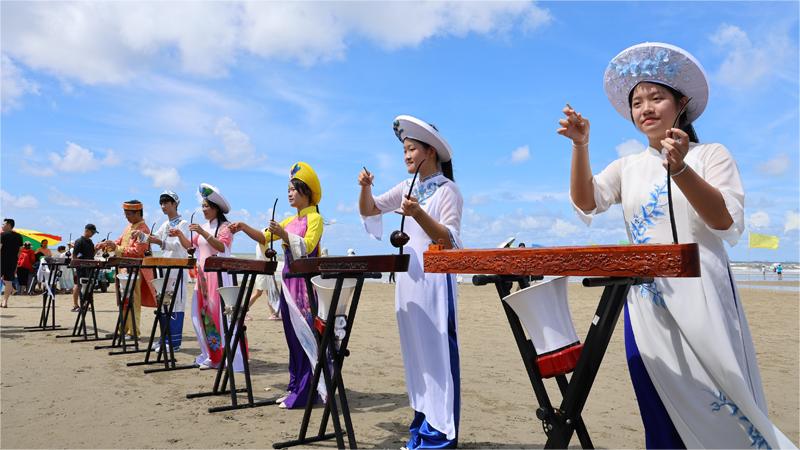Sexagenarian couple safeguard millennia-old traditional dance in SW China's Guizhou
A senior couple living in a village nestled deep in the mountains of southwest China's Guizhou Province has been devoted to preserving and promoting the Jinji (golden pheasant) Dance, a traditional folk dance of the Miao ethnic group.
Dating back over 1,000 years, the Jinji Dance is a distinctive style of the Miao people's Lusheng Dance, a kind of traditional folk dance named after the traditional musical instrument used as accompaniment for the dance, the Lusheng.
The Jinji Dance is primarily found in Paidiao township, Danzhai county, Qiandongnan Miao and Dong Autonomous Prefecture of Guizhou. It is typically performed during traditional festivals and sacrificial ceremonies.
During the performance of the Jinji Dance, costumed female dancers resembling beautiful golden pheasants move counterclockwise in a circular pattern, following male dancers who play the Lusheng. Their graceful movements mimic the foraging and frolicking of golden pheasants, hence the dance's name.
Both the Jinji Dance and Lusheng crafting have been recognized as national-level intangible cultural heritage in China, with the Jinji Dance being a highlight of annual intangible cultural heritage-themed events held in Danzhai county and various cultural activities across Guizhou Province and beyond.
The couple, who live in Yanggao village of Paidiao township, met and fell in love with each other because of the Jinji Dance.
Wang Fangyuan, the 62-year-old husband, is a provincial-level representative inheritor of the Miao people's Lusheng crafting, while his 60-year-old wife, Li Jinying, is a national-level representative inheritor of the Jinji Dance.
United by their passion for this ancient art form, they have been the guardians and torchbearers of the Jinji dance for decades.
Over the years, Wang has dedicated virtually every moment of his free time to crafting and passing on the skills needed to craft the Lusheng, a wind instrument made of bamboo pipes. Meanwhile, Li has tirelessly taught and showcased the dance, imparting its essence to the young people of Yanggao village and visiting dancers and scholars.
Since the Jinji Dance was included in the first batch of national-level intangible cultural heritage of China in 2006, the couple has joined folk-art troupes in introducing Chinese folk art to overseas audiences.
Their visits to France, the Netherlands, Italy, as well as other countries and regions have earned high praise for the Jinji Dance from foreign audiences.
The couple are optimistic about the future of the Jinji Dance. "With the collective efforts made by everyone who cares about intangible cultural heritage, more people will come to appreciate the Jinji Dance, and this ancient art form will be passed down from generation to generation," they said.
 |
Photos
Related Stories
- Song and dance drama "Epic of Manas" performed during international cultural tourism festival in NW China's Xinjiang
- Granny dances to the beat
- Chinese classical dance show "Beauty Beyond Words" staged in Bucharest
- Dancers from National Ballet of China perform at Kennedy Center in U.S.
- Gray-hair professor's dance class
- Chinese teens' Yingge dance performances mesmerize social media
- Captivating dance performance brings paper-made cranes to life
Copyright © 2024 People's Daily Online. All Rights Reserved.










